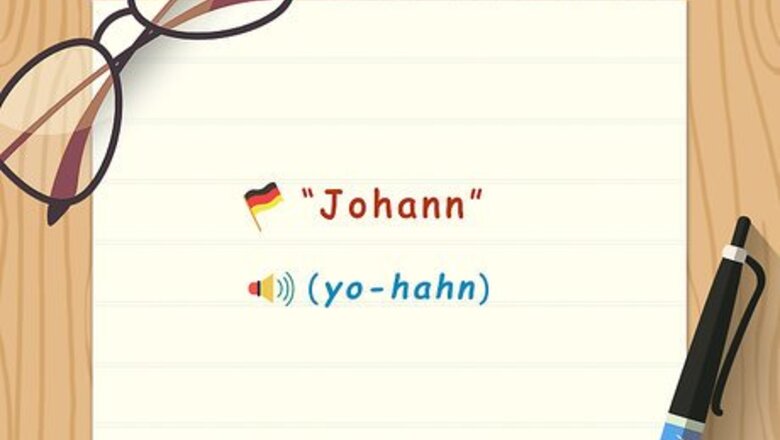
views
Saying "Ja"
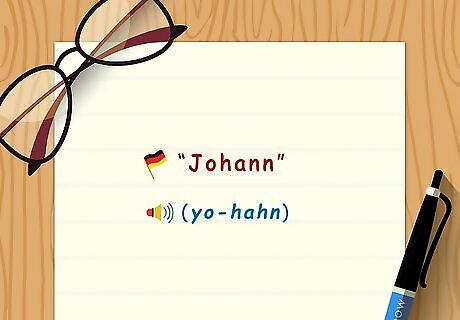
Pronounce the "J" as a "Y." The German "J" is pronounced like the "Y" in "yo-yo." If you're a native English speaker, train yourself to think of that hard "Y" sound whenever you see a "J" in German. It may take some practice before it becomes automatic.
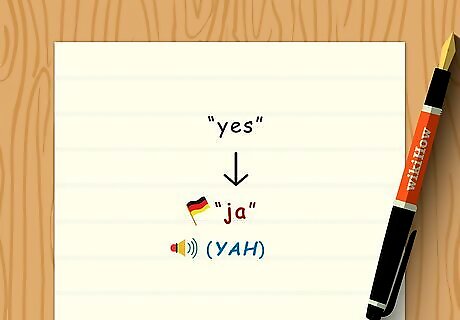
Draw out the "ah" sound. The "A" in German sounds basically the same whether it is short or long, like you would open your mouth and say "ah." To pronounce it correctly, don't open your mouth as much as you would in English. Pull the sound more from the back of your throat. Put this sound together with the "J" sound and you can now say "yes" in German in the most basic way: ja (YAH).
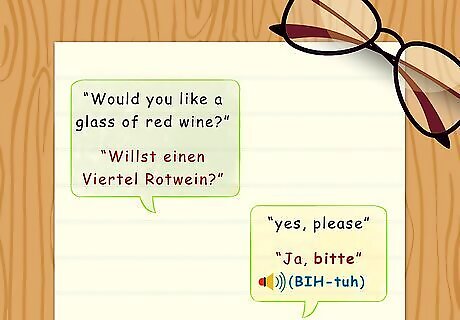
Add the word bitte (BIH-tuh) to be polite. In German, "bitte" means "please." Say "ja, bitte" in response to a question whenever you would say "yes, please" in English. You can also simply say "bitte," especially when offered something. For example, suppose someone asks you "Willst einen Viertel Rotwein?" or "Would you like a glass of red wine?" If you do, you can say "Ja, bitte" or simply "Bitte."
Using Other Affirmative Words
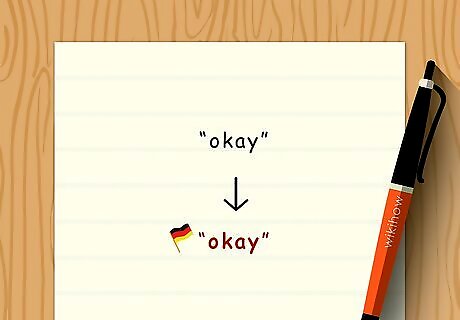
Start with "okay." German speakers also say "okay" in place of "yes." It means the same thing in German as it does in English, and is pronounced roughly the same. You may not feel like you're speaking German when you say it, but German speakers will understand your meaning.
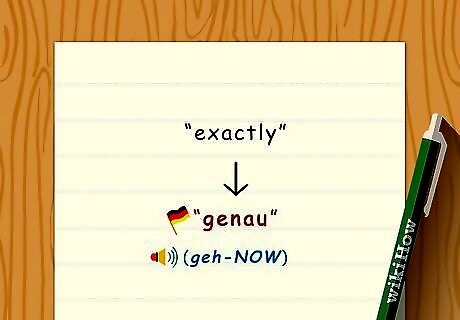
Say "genau" (geh-NOW) to mean "exactly." The word genau is one that German speakers use frequently. While it literally means "exactly," you may hear it used almost in the same way people say "uh-huh" in English. The letter "G" in German is almost always a hard "G," like in "gay" or "garnet."
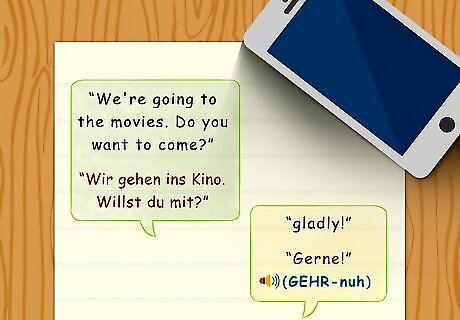
Use "gern" or "gerne" (gehrn or GEHR-nuh) to agree to go somewhere. The word gern means "gladly," but is used in German far more often than the word "gladly" is used in English. It is frequently used as a response to a question or offer instead of saying "ja." For example, suppose someone asks you "Wir gehen ins Kino. Willst du mit?" or "We're going to the movies. Do you want to come?" You might respond "Gerne!" instead of "ja." Add an "e" to the word if you're talking about a feminine noun. This "e" is not silent.
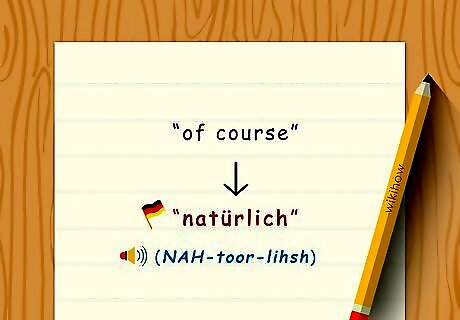
Agree to do something by saying "natürlich" (NAH-toor-lihsh). The word "natürlich" means "of course." To remember the meaning of this word, you might note how similar it looks to the English word "naturally." Because this word has a couple of unique German sounds, it may be more difficult for native English speakers to pronounce at first. Just practice those sounds and have patience!
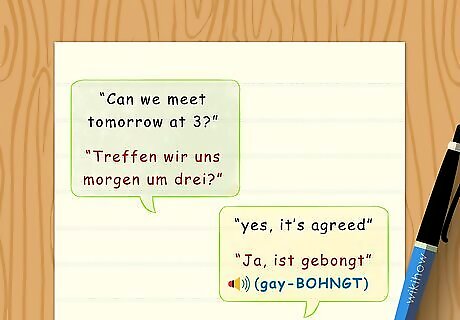
Try gebongt (gay-BOHNGT) to indicate something is agreed upon. The word gebongt is related to the settling of a transaction, and indicates that something has been settled and agreed upon by both parties. This is slang, but it's still used pretty commonly. For example, someone might ask "Treffen wir uns morgen um drei?" or "Can we meet tomorrow at three?" You could respond "Ja, ist gebongt" or "yes, it's agreed."
Perfecting German Pronunciation

Keep your lips closer together. Generally, the German language is spoken through tightly pursed lips. When you pronounce words in English, however, you open your mouth more. If you practice holding your mouth more closed, your pronunciation will automatically improve. Go online and look for videos of native German speakers. Watch their mouths and the tension in their cheeks. The more you're able to replicate this, the easier German pronunciation will be.
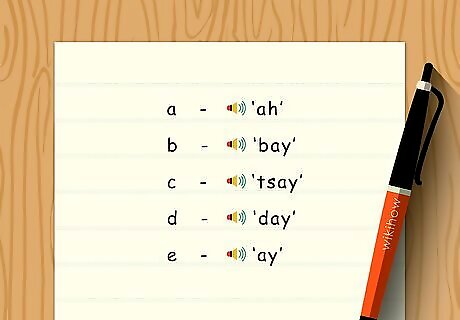
Start with the German alphabet. When you were learning your first language as a small child, the alphabet was probably one of the first things you were taught. Likewise, memorizing the German alphabet is a good way to master your German pronunciation. Each of the German consonants has a sound which may differ from the English sound for the same letter, as you saw with the "j" in "ja." With practice you'll come to automatically pronounce these letters correctly in German.
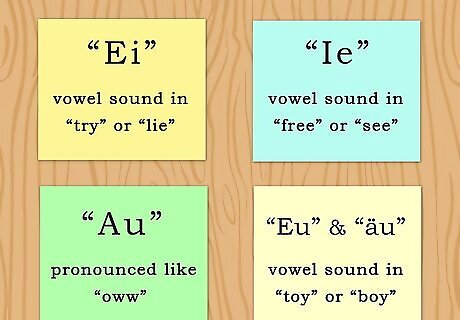
Practice your diphthongs. A diphthong is two vowel sounds blended together to form a unique sound. There are several of these vowel combinations in German, and they are pronounced the same way every time, regardless of the word. Ei is pronounced like the vowel sound in "try" or "lie." Ie is pronounced like the vowel sound in "free" or "see." Au is pronounced like "oww," as in the sound you might make when you stump your toe. Eu and äu are both pronounced like the vowel sound in "toy" or "boy."
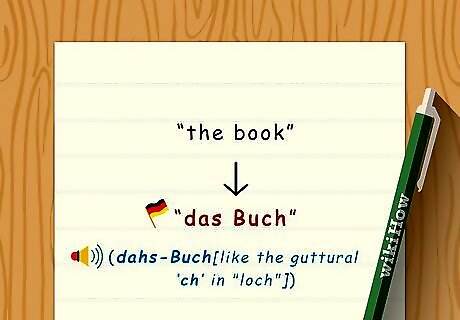
Work on your "ch" sound. The German "ch" sound is more guttural than its English counterpart, and can be difficult for English speakers. To pronounce the German "ch" sound correctly, the sound should come from the back of your throat. When the "ch" follows an "a," "o," "u," or "au" sound, it's much like the "ch" in "Loch Ness Monster." If the "ch" follows any other letter, it's softer, almost a "sh" sound.
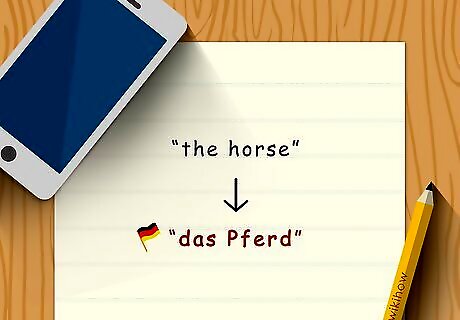
Pronounce all consonants. It isn't common to put consonants next to one another in English, and when you do they either blend together into one sound, or one of the letters is silent. However, in German, you want to pronounce each consonant separately. Pf is a relatively common combination of consonants in German words that doesn't exist in English. Start by pronouncing the "f" like the "f" in "feel," then add a "puh" to the beginning of it. Repeat that "puh-fuh" sound to yourself until you can say it more quickly, so that it almost but not quite blends together.




















Comments
0 comment